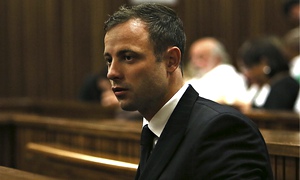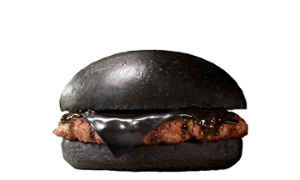
Australia has increased its terrorism alert level from medium to high – the first such change in 11 years.
Tony Abbott announced the move on Friday, two weeks after the UK raised its terrorism threat level and a day after the US outlined its strategy for targeting Islamic State (Isis) militants in northern Iraq and Syria.
Abbott told reporters on Friday the adjustment was made on the basis of preserving public safety. He said the change to the alert level had been executed by the Australian Security Intelligence Organisation (Asio) on Thursday night.
“I want to stress that this does not mean that a terror attack is imminent,” the prime minister said, speaking next to the Asio director general, David Irvine, in Melbourne. “We have no specific intelligence of particular plots. What we do have is intelligence that there are people with the intent and the capability to mount attacks. I want to stress that.”
“I want to stress that for the vast majority of Australians, the rise in the threat level from medium to high will not make any difference to daily life,” Abbott said. “What people will probably notice though is more security at airports, more security at ports, more security at military bases, more security at government buildings, and more security at large public events.”
The prime minister said a “modest public information campaign” would begin in the coming weeks, and a hotline had been opened for the public to report any suspicious activity.
Abbott said despite the adjustment in the alert level, normal activity should go on. People could and should attend large public events, such as the football grand finals. “Normal life in Australia can and must go on,” the prime minister said.
“But we need to be aware that there are people who wish to do us harm, and are preparing to do us harm, but we think that our security, intelligence and police organisations are smarter than them, are one step ahead of them, and can protect us.”
Irvine said Asio’s judgment was that a domestic terrorism attack “is now much more likely” given events in the Middle East, and the involvement in the sectarian conflicts of Australian citizens.
“So we see an increase particularly in intent – I won’t go into all of the details but I think it is important that we raise awareness partly by raising the threat level and to assure people that the authorities both law enforcement and the security intelligence service are very concerned about this and are watching it with great care,” Irvine said on Friday.
Security officials believe terrorist groups are currently recruiting from the ranks of foreign fighters in Syria and Iraq, and say the current domestic risk assessments stem from the threat posed by lone actors on the periphery of networks rather than the prospect of a Bali-style mass casualty event.
Officials report an increase in the intent to carry out a terrorist event, and the lone actor scenario means capability is not particularly complicated. A British soldier, Lee Rigby, was killed on the street by two militants in London in May 2013.
There has been a sixfold increase in counter-terrorism investigations in Australia over the past 12 months, and over 50 passports have been cancelled over the same period.
The looming G20 meeting in Brisbane was already being planned on the basis of high risk, but officials are said to be reviewing security planning for that event. Airlines and other transport companies are also understood to be reviewing practices in light of Friday’s increase in the alert level.
The opposition leader, Bill Shorten, who had been briefed on the decision, said that “when it comes to fighting terrorism, we are in this together”.
“It is absolutely in our national interest that Isil be defeated. I thank the prime minister for his willingness to engage with the opposition. The prime minister and I are partners when it comes to national security … and protecting Australians. We are in this together,” Shorten said.
Australia’s National Terrorism Public Alert System has remained at medium since 2003, when the four-level system was introduced.
Under this system, medium indicates that a terrorist attack “could occur” whereas “high” indicates that a terrorist attack “is likely” and the top level, “extreme”, indicates that a terrorist attack “is imminent or has occurred”. The least severe level, “low”, indicates a terrorist attack is not expected.
The system is intended to communicate an assessed risk of terrorist threat to Australia. It “guides national preparation and planning” and “dictates levels of precaution and vigilance to minimise the risk of a terrorist incident occurring”, according to the government’s national security website.
It comes as the government prepares to present legislation to parliament to make it easier to detain and prosecute Australians suspected of fighting in extremist groups in the Middle East.
Intelligence agencies have been warning for years about the domestic security threat posed by fighters who become radicalised and then return home.
Agencies believe about 60 Australians are fighting with terrorist groups in Syria and Iraq, and about 100 more are providing support to these efforts. At least 20 have returned to Australia after fighting in the bloody conflicts.
The attorney general, George Brandis, said on Friday the next stage of the government’s new security laws to deal with this perceived threat would be introduced in two weeks’ time.
He said the government’s actions would help protect the Muslim community in Australia.
“It is a sad fact that the wicked people who recruit … to violence Australian citizens, are preying upon the Muslim community so as to encourage their young men to fight in the Middle East,” he said.
“Their communities are victims of these wicked people … the steps we are taking are designed to protect them … and their communities.”
Meanwhile, Australia has reaffirmed its willingness to consider joining US-led air strikes in Iraq or provision of military advisers, after Barack Obama vowed to enlist a “broad coalition of partners” to target Isis militants.
The US president, in a widely anticipated address on Thursday, outlined his strategy to “degrade and ultimately destroy the terrorist group”, highlighting the security threat to western nations posed by the return of citizens from fighting with militants in Iraq and Syria.
Abbott has confirmed he will visit New York in two weeks to take part in a high-level meeting of the UN security council convened by Obama to address the threat posed by foreign terrorist fighters.
The prime minister said on Thursday it was “important for Australia and for the world” that Isis was defeated. “I fully support President Obama’s call for action and Australia will work with our international partners to combat this evil menace,” Abbott said.
The foreign affairs minister, Julie Bishop, said Australia had the capability to participate in air strikes in Iraq.
“If we’re requested to do so, we will consider it in terms of the overall objectives,” she told the ABC on Thursday.
“We will need to have a clear and proportionate role for Australia. We would need to understand the resources and the assets that would be required and have a defined timeline so that we can then weigh the risks, make our judgment and then inform the Australian people.”














